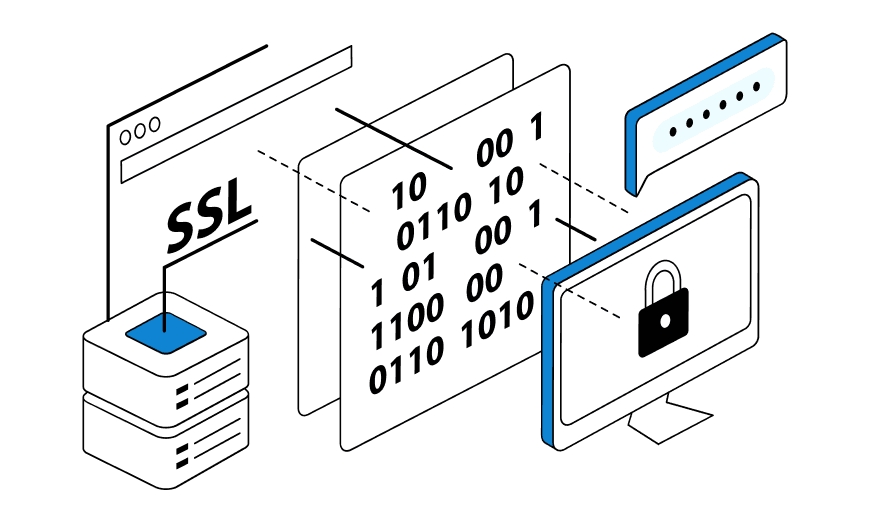
Modern e-commerce is not just a showcase of products and a shopping cart. It is a large-scale system where automation, security, and speed play a decisive role. To remain competitive, online store owners, resellers, and marketers actively use automation tools: parsing, price monitoring, and account management. But as the scale grows, so do the risks of being blocked. This is where proxy servers come to the fore.
In this article, we will look at what proxies are available for e-commerce, how to choose the most suitable option for different tasks, and why the use of proxies has become an essential part of trade automation strategies. In addition, you will learn which ones are suitable for working with marketplaces, electronic payments, and complex e-commerce platforms.
The role of proxy servers in e-commerce automation
In e-commerce, any action that is repeated dozens or hundreds of times — whether it’s updating prices, scanning inventory, or processing orders via API — is a candidate for automation. However, large platforms such as Amazon, eBay, Rozetka, Allegro, or Joom actively fight bots, and any suspicious behavior (such as too frequent requests or logins from a single IP) can lead to blocking. The solution? Proxies.
Proxies for e-commerce allow you to distribute requests, bypass IP restrictions, and emulate the behavior of a real user. This is critically important when you work with multiple accounts, test advertising campaigns, integrate with marketplaces, or manage thousands of products. Proxies are especially important for working with electronic payments, where a stable and secure connection is not only a matter of convenience but also of business reputation.
Cases of proxy use for e-commerce tasks
The practical application of proxy servers in e-commerce covers dozens of scenarios — from collecting analytics to exchanging data with external platforms. Below are the most illustrative cases where proxies become an indispensable tool:
Mass parsing of product items. To regularly collect data on competitors or track price changes, you need a stable stream of requests from different IP addresses. In this case, the best proxies for marketplaces are suitable — with high speed, low latency, and address rotation.
Automatic account management. When working with dozens of trading accounts, it is important that each of them “lives” in its own unique environment. This means that each one requires a separate IP, preferably mobile or residential. And here the question arises: how to choose a proxy for e-commerce if some platforms are sensitive to geography, while others are sensitive to user behavior?
Connecting payment gateways and wallets. In some cases, payment systems (such as Stripe and PayPal) require a static IP address from a specific region. Static proxies are used here to provide connection stability, which is key for processing transactions.
In the following sections, we will take a closer look at the types of proxies available for e-commerce, how mobile, residential, and data center proxies differ, and which ones really work in today’s market.

Choosing a proxy for e-commerce
Choosing the right option is not about “more expensive means better.” It’s about suitability for the task. Proxies in trading systems must not only provide stable access, but also adapt to loads, geolocation requirements, platform types, and user behavior characteristics. This is especially important if you plan to buy proxies for an online store or a whole group of e-commerce projects. The choice should be based not on the brand, but on performance analysis and testing.
Automating trading with proxies is an investment in stability: less downtime, fewer bans, greater reach, and more effective advertising campaigns. It is important to consider not only the price, but also the type of proxy (data center, residential, mobile), the level of anonymity, HTTPS support, and the availability of technical support.
When to use a proxy service for your e-commerce business
Proxies are becoming relevant not only for large retail chains, but also for small and medium-sized businesses. Even if you have only one store, you may encounter IP restrictions, especially if you work with APIs or CRMs linked to external platforms. They are also necessary if:
- You are parsing competitors or product inventory on marketplaces.
- You manage multiple online stores through a single browser.
- You conduct A/B testing and analytics in advertising systems.
- You connect international payment gateways.
In these cases, using proxies in trading systems is not a luxury, but a strategic necessity. Especially if your business is scaling up or entering new markets.
Proxy metrics in e-commerce
First, it is worth testing the proxy servers. This will help you understand how well the selected service copes with real tasks. Here are the key metrics to pay attention to:
- Response speed (latency) — affects the overall data loading time and the speed of automatic scripts.
- Connection stability — especially important for tasks with a high frequency of requests.
- Anonymity level — the higher it is, the less chance there is of getting banned.
- IP address geography — depends on the target audience and platform requirements.
- Rotation level — if a high frequency of IP changes is required.
Taking all these factors into account, proxy-based trading automation reaches a whole new level. This allows you to minimize manual labor, speed up business processes, and maintain competitive advantages in the ever-changing world of e-commerce.
How not to use proxies in trade automation
Despite their effectiveness in automation, their misuse can lead to bans, data leaks, or productivity losses. It is especially dangerous to use free or suspicious proxy services without technical support — the risk of losing access and even having accounts blocked increases significantly.
It is also not worth trying to scale automated actions without adapting them to the platform. For example, proxies for Amazon and proxies for Ebay have their own nuances. In the first case, they are particularly sensitive to bot activity, and in the second, they can block IPs without explanation. Mass activity without setting timeouts or IP rotation is a direct path to sanctions.
Automation of online stores with proxies
Automation of online stores with proxies is more than just “speeding up processes.” It is about sustainable order management through proxies, synchronization with databases, real-time pricing, and adaptation to changes in demand. This is especially relevant for owners of multi-channel e-commerce projects who sell simultaneously on their website, Instagram, OLX, and Amazon.
With the right approach, proxy trade automation includes:
- Collecting and analyzing market data.
- Monitoring stock levels and dynamically updating prices.
- Order and logistics management.
- Integration with payment gateways and CRM.
Servers with high speed, minimal latency, and HTTPS support are suitable for these tasks. The ideal option is to rent a proxy with guaranteed performance and 24/7 technical support.
Arbitrage in electronic trading systems
Special attention should be paid to traffic arbitrage and product arbitrage in e-commerce. Here, proxies for Amazon and proxies for Ebay are not just tools, but the foundation for stable operation. Without them, it is impossible to test dozens of creatives, advertise on different landing pages, and bypass geoblocks.
Arbitrageurs particularly value renting proxies with rotation, linking to the desired region, and a high level of anonymity. This allows you to run advertising campaigns without the risk of de-anonymization, connect partner accounts, and work with large volumes of traffic.
If you want to scale your business model through proxy trading automation, it is important to build your system on a reliable infrastructure. Otherwise, even the best creative+offer combination will not withstand pressure from platforms.

Let’s draw some conclusions
Modern e-commerce requires not just active participation, but a strategic approach to each stage: from analytics and product management to secure payment systems. That is why proxies in e-commerce have long ceased to be a tool “for advanced users.” Today, they are a basic element without which it is impossible to effectively scale a business.
Why is it important to use proxies in e-commerce? The answer is obvious: they provide stability, security, and freedom of action. From multi-threaded parsing and managing dozens of accounts to arbitration and connecting external APIs, all of this requires a reliable communication channel adapted to the tasks of electronic commerce.
Using them allows you to:
- accelerate and scale automated processes;
- avoid blocks and sanctions from platforms;
- simplify work with payment and advertising systems;
- increase the flexibility and reliability of your business infrastructure.
If you are planning to develop an online store, enter new markets, or simply reduce manual labor, start with something simple: choose a reliable proxy service. This is an investment that will quickly pay off and open up new horizons for you in e-commerce.









